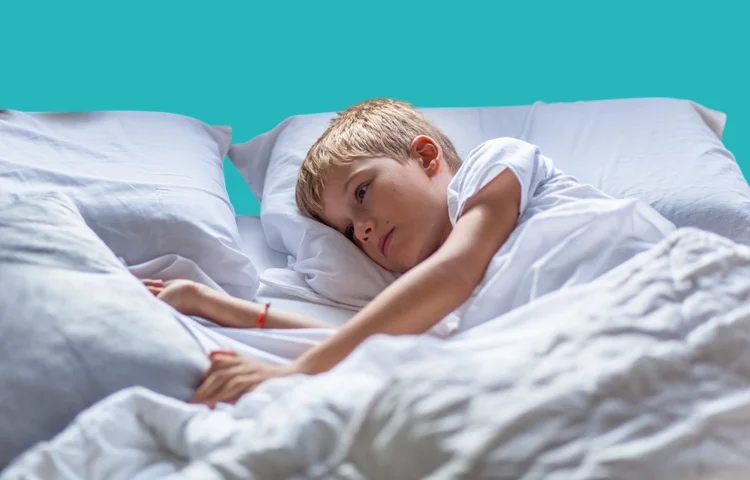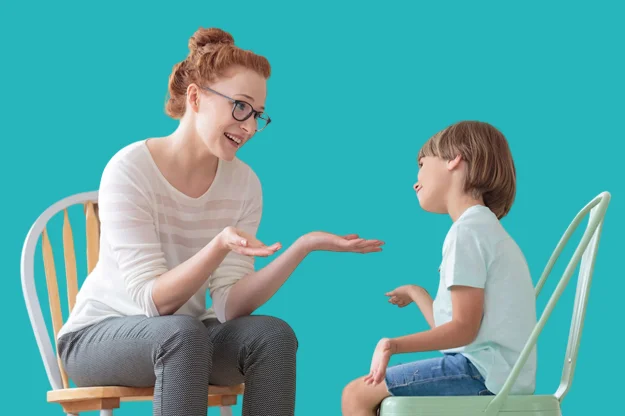Enuresis in children is a problem that many children face, and it worries parents, especially if the child continues to urinate involuntarily after the age at which they are supposed to have bladder control.
This condition may be temporary, but it can affect a child's psychological state and self-confidence if not treated properly. In this article, we will learn about the causes and treatment of this problem.
What is urinary incontinence in children
Enuresis in children is the loss of control over urination at the age when a child is supposed to have learned to control their bladder. It may occur while asleep, awake, or both.
It is not always a sign of a specific disease, but it may be due to delayed development of the nervous system responsible for bladder control, or behavioral or psychological reasons.
What are the causes of urinary incontinence in children

There are physical, psychological, and behavioral reasons that lead to urinary incontinence in children, including:
- Genetic factors.
- Psychological stress.
- Sleep disorders.
- Delayed maturation of the nervous system.
- Chronic constipation.
- Hormonal disorders. A urinary tract infection.
- Drink plenty of fluids before bedtime.
What are the symptoms of urinary incontinence in children
Symptoms vary depending on the type and cause of urinary incontinence in children, including:
- Chronic constipation and abdominal pain.
- Frequent bedwetting.
- Wetting the bed more than twice a week.
- Itching, burning, and pain during urination.
- A strong urine odor emanating from the child's clothes.
- Frequent urination during the day, but in small amounts.
- Sudden urgency and inability to wait.
Types of urinary incontinence in children
Urinary incontinence in children is classified according to the time of occurrence and cause, including:
- Primary incontinence.
- Secondary incontinence.
- Nocturnal incontinence.
- Daytime incontinence.
How is urinary incontinence diagnosed in children
Diagnosing a child with urinary incontinence depends on knowing the child's urination pattern, the frequency and timing of urination, and medical and psychological history.
The doctor then examines the child to ensure there are no organic problems and requests a urine test to ensure the health of the kidneys and bladder.
If the doctor suspects a psychological cause, the child may be subjected to a behavioral assessment to determine the true cause of urinary incontinence and determine the appropriate treatment for the child's condition.
Methods for Treating Urinary Incontinence in Children
Treatment for urinary incontinence in children depends on the underlying cause and includes:
- Treatment of constipation.
- Restricting fluid intake at night.
- Constantly reminding the child to urinate.
- Treatment of urinary tract infections.
- Psychobehavioral therapy for the child.
- Medication to improve the bladder's ability to hold urine.
Tips for Parents Dealing with a Child with Urinary Incontinence

Dealing with a child with urinary incontinence requires a great deal of calm and patience. It is best to follow the following tips:
- Avoid punishing or scolding the child.
- Reward the child when behavior improves.
- Encourage the child and provide psychological support.
- Avoid giving the child too many fluids before bedtime.
- Speak calmly to the child and avoid frightening or stressing them.
- Help your child urinate twice in a row before bedtime.
- Consult a doctor if the problem persists for a long time.
Preventing Urinary Incontinence in Children
To prevent urinary incontinence in children, it is best to start early with toilet training and use encouraging methods without forcing or punishing them if they make a mistake.
Encouraging your child to urinate before bed and limiting fluids before bedtime, especially those containing caffeine or carbonated drinks, can also prevent this problem.
In addition, pay attention to your child's diet, which should contain fiber to prevent constipation. This should also ensure an environment free of stress and physical punishment to ensure psychological stability.
Frequently Asked Questions About Urinary Incontinence in Children
Is urinary incontinence in children a disease
No, it is not a disease. It is a temporary condition that resolves when the underlying cause is removed.
Is urinary incontinence curable
Yes, it can be cured with appropriate treatment and psychological support.
Can urinary incontinence in children be treated with herbs
Some soothing herbs, such as mint or chamomile, can be used to help treat urinary incontinence in children. However, this does not replace medical advice and basic treatment.
Article Summary
Urinary incontinence in children is a common problem among children, but it is not serious and results from temporary psychological factors or a slight delay in bladder control.
This problem can be treated through behavioral training, psychotherapy, and sometimes medication, while avoiding punishment and encouraging the child to urinate regularly.